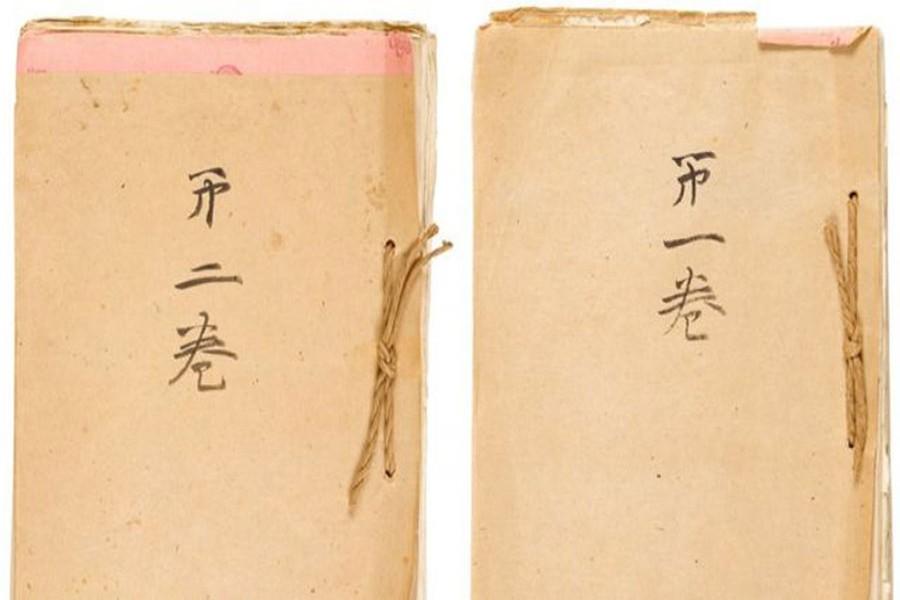Also known as the Imperial Monologue, it chronicles the slide into war until
The notes handwritten by an aide to the Emperor are thought to have been made at the request of the
It is assumed to have been carefully written to absolve the god-like emperor of personal responsibility for the war.
The memoir was first published in 1990 after the emperor's death the previous year.
The original manuscript was sold by British auction house Bonhams in
The recollections were dictated by the emperor to several of his aides in 1946, "with the likely encouragement of Douglas MacArthur, the Supreme Commander for the Allied Powers", according to Bonhams.
The memoir auctioned is a handwritten copy by one of those aides, diplomat Terasaki Hidenari, who also worked as interpreter for the emperor dealing with the
According to Bonham, the two notebooks are the only full record of the Emperor's spoken memoirs, "and constitute a key resource" for understanding Japanese history.
In the recollection, Emperor Hirohito describes himself as having been in a situation where he had no choice but to agree with cabinet decisions.
According to the memoir he feared that opposition to
The degree to which Emperor Hirohito was involved in decision making during the war remains controversial among historians.
Unlike many senior government figures he was not tried for war crimes after WW2 but continued to reign over his country's re-emergence as an economic powerhouse and a stern ally of the West throughout the Cold War.


